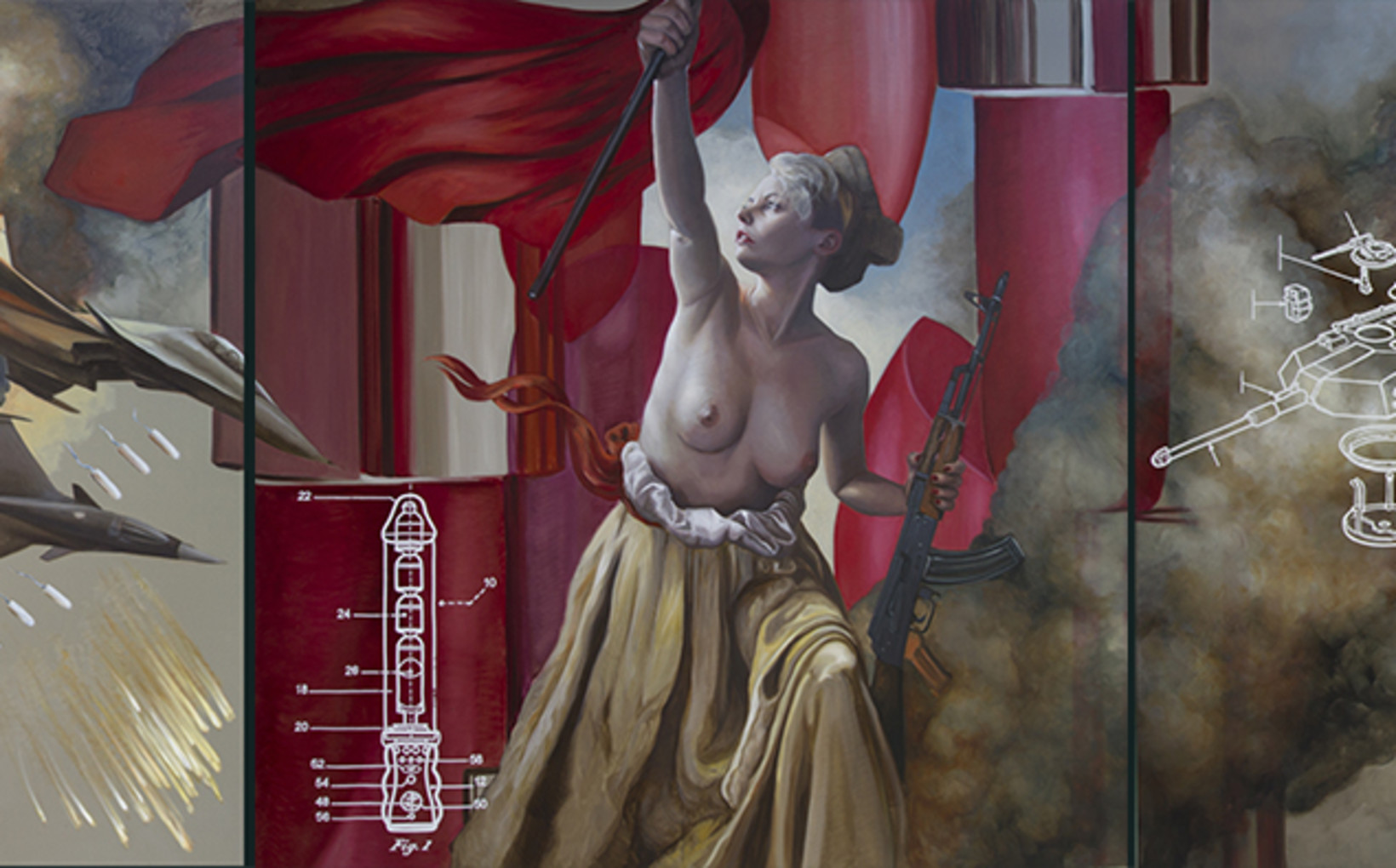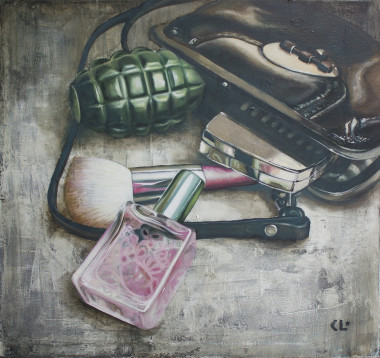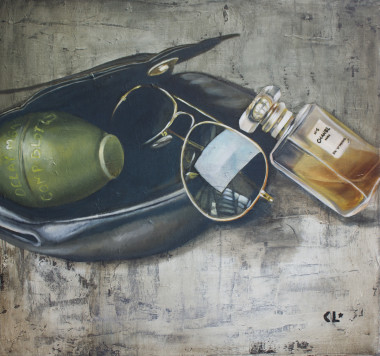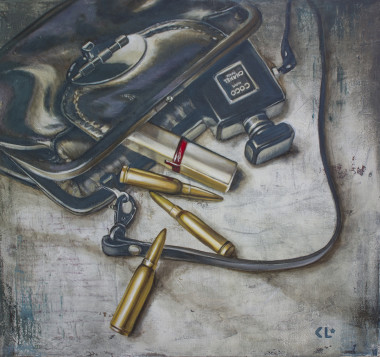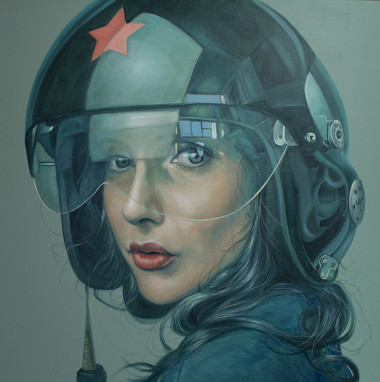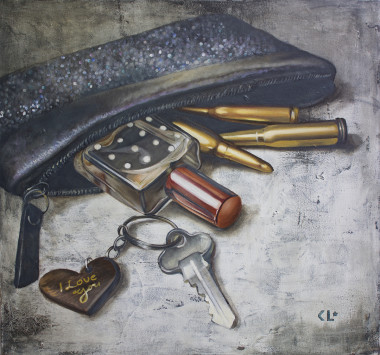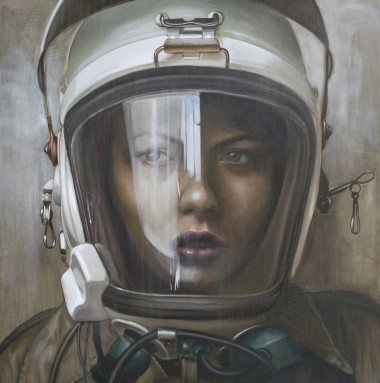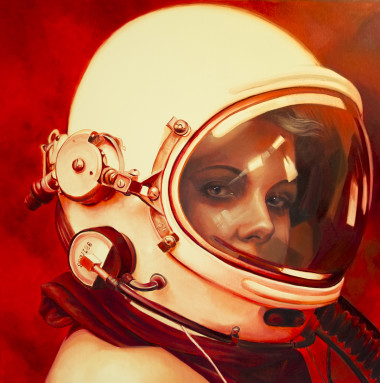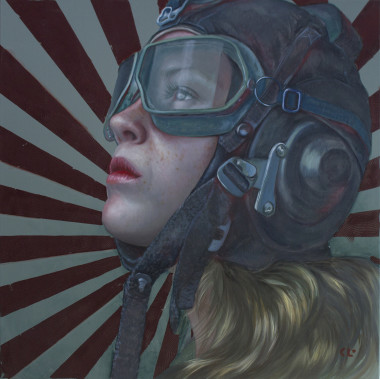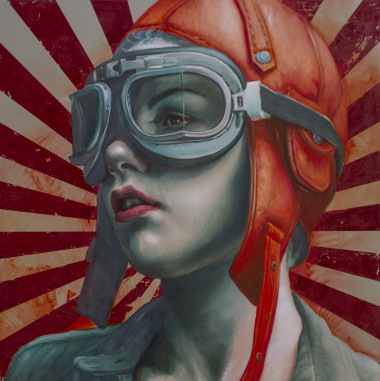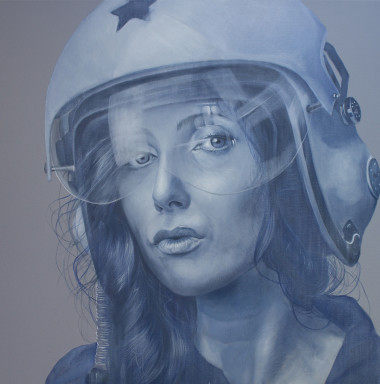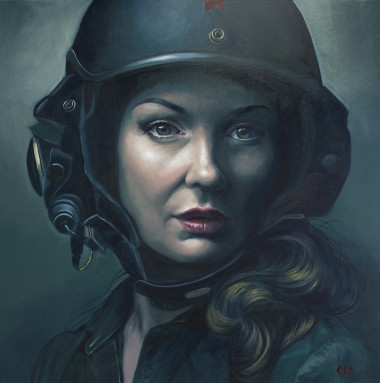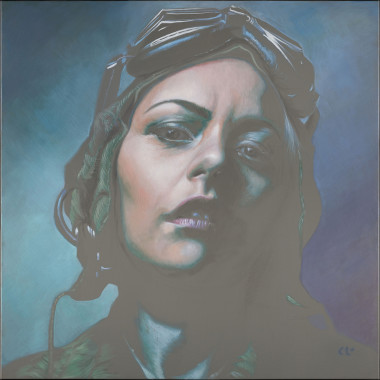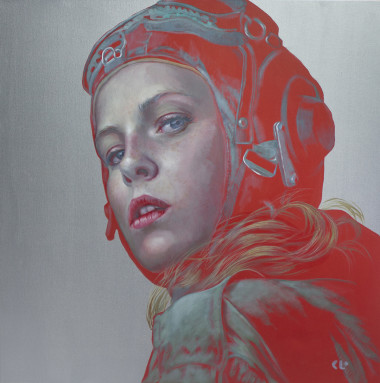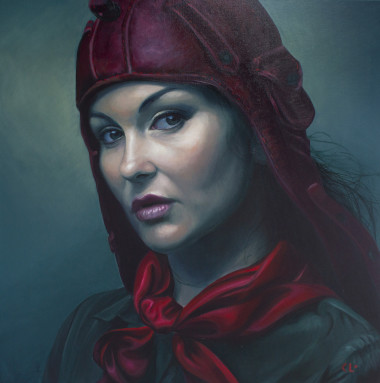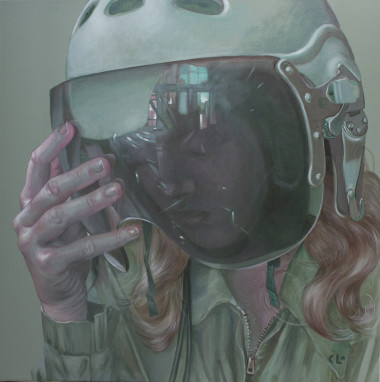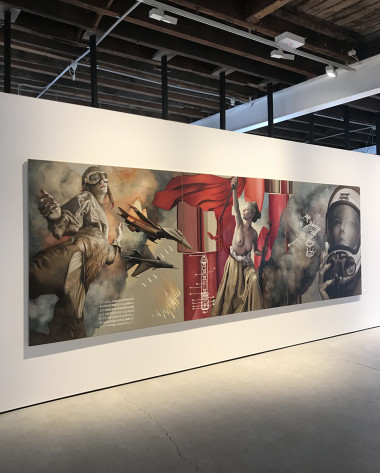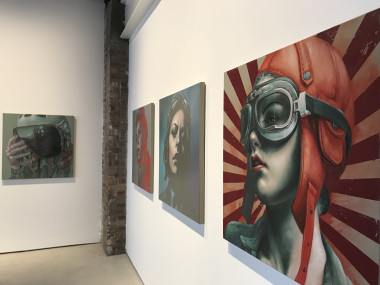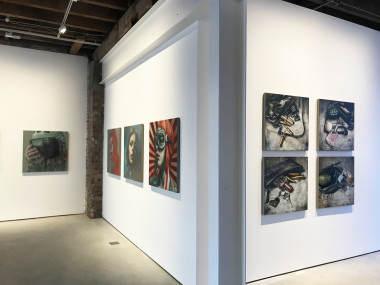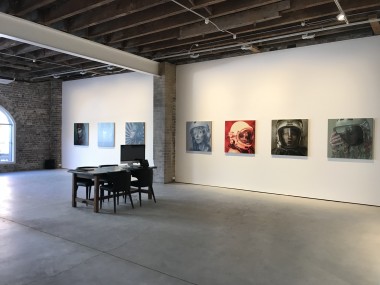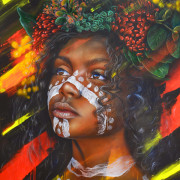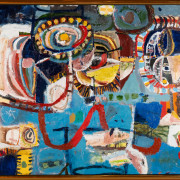In 1965, Robert Rosenquist completed his pop vision of a flawed utopian paradise. The title of the 26 metre long prophetic masterpiece was "The F1-11"—the ultimate Cold War killing machine, morphed with cheesy icons drawn from the daily advertising Leviathan that was 1960's America. The work pointedly described the dichotomy of a nation profoundly conflicted, and a crisis of identity that has, if anything, expanded in today’s contemporary society.
For us, everything that was old is now new—a new Russia/China/USA Cold War marching forth in ways that fifty years ago was never imagined—now, manifested through cyberspace. Driven by the Orwellian dictate from Animal Farm ”All pigs are created equal; just some are created more equal than others”, it is a world where communism and capitalism ideologically fight by day, yet make financial bedfellows by night.
More recently, the idealisation of the 1960s feminist movement is driving a stake into the heart of patriarchal society, publicly disgracing the perpetrators through the #MeToo movement. As always, the touchstones of society—visual culture, writing and film—are used by thinkers and artists to enhance and propagate variations of well-worked ideas from history to improve our society. It is a world now crowded with information and methods of dissemination to its audience.
Kathrin Longhurst is a child of the Cold War—having grown up on the grey side of the Berlin Wall. Her childhood was in a society indoctrinated and controlled with totalitarian vigour through the rule of law and a virulent propaganda machine. The perceived glamour of the west filtered through to the artist as a girl via beaten up glossy magazines and word of mouth stories that one could only dream of.
Longhurst’s childhood of counting missiles in school books and experiencing firsthand the results of a society where everything is watched, has left an indelible impression on her. Five decades after the Rosenquist's F1-11, Longhurst pointedly pushes at the outer edges of the ideological boundaries in our world.
Protagonist is an exhibition that delivers its message in a playful way, yet, ideologically nuclear in its motherload of social commentary. It is an exhibition that speaks to a world that struggles with identity—not only from the nationalist point of view—but with male/female ideology. Yet, like all great artists, Longhurst can keep a sense of humour, albeit laced with the irony and lessons from history.
Ralph Hobbs
June, 2018
ARTIST TALK - Join Ralph Hobbs in converstion with Kathrin Longhurst on Saturday, 16 June 2-3pm
Kathrin Longhurst is a finalist in the 2018 Archibald Prize, Art Gallery NSW - View Here
